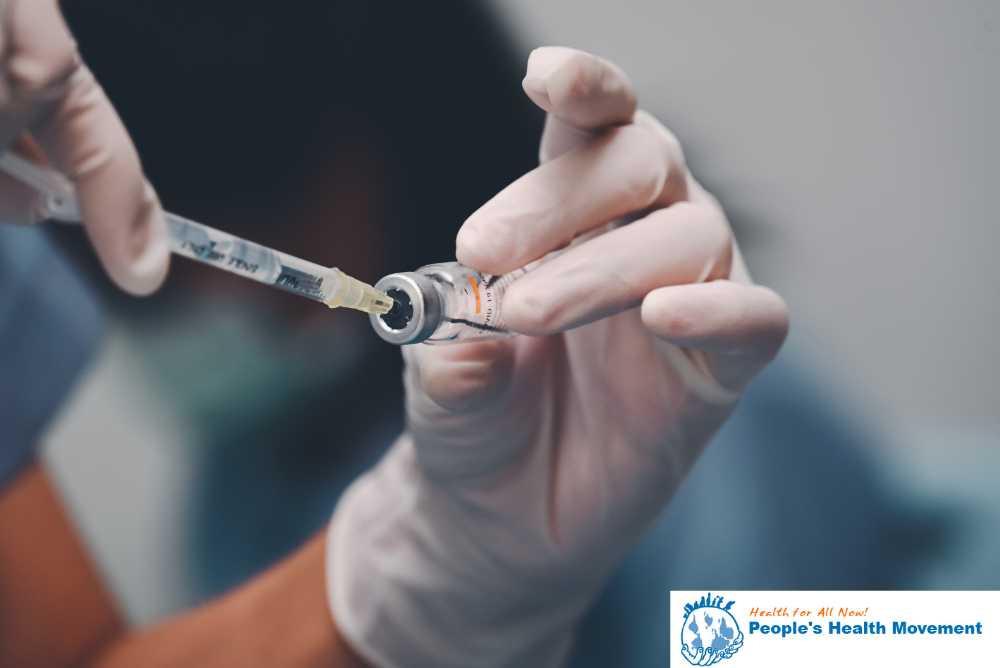PHM Statement on HJI victory
The People’s Health Movement congratulates the Health Justice Initiative (HJI) on their important victory. In August this year, the Pretoria High Court ruled that the South African National Department of Health should provide HJI with access to all COVID-19 contracts the South African government had signed with Pfizer, Johnson and Johnson, Serum Institute of India, and COVAX.
The HJI’s victory helped to expose the power imbalance between governments desperate to protect the health of their populations on the one hand, and pharmaceutical companies and multi-stakeholder initiatives like COVAX, on the other. This power imbalance led to the South African government being bullied into:
- Signing non-disclosure agreements, thus violating the principle of transparent and accountable procurement, especially where public funds are used;
- Agreeing to indemnify companies from liability for risks associated with using the vaccines, even though companies have historically had to carry this risk;
- Releasing large up-front payments for vaccines, despite the contracts exempting vaccine producers and distributors from sharing reliable information about vaccine delivery volumes and schedules, making it difficult to plan the national public health response;
- Paying higher prices for vaccines than some countries in the global north that have vastly more resources than South Africa;
- Refraining from sharing vaccines with other countries in need, despite the world experiencing a global public health crisis that could be mitigated by rapidly immunising as many people as possible, particularly vulnerable groups;
The HJI’s victory is important because it exposes the profiteering that pharmaceutical companies engaged in during the pandemic. Abusing market dominance to secure profits at the expense of saving lives is inexcusable and unjust.
It is significant because it shows that multi-stakeholder initiatives like COVAX also have transparency, accountability, and efficiency deficits – especially when engaging in negotiations with powerful pharmaceutical corporations.
Finally, the HJI’s victory affirms that courts, activists and government officials all have a role to play in regulating corporate power and holding corporations to account, particularly in life-and-death situations. In this regard it is encouraging that the South African government refrained from challenging the Pretoria High Court’s ruling and allowed the contracts to enter the public domain.
The case clearly shows that voluntary measures are insufficient to guarantee access to information. The case also illustrates why there is growing interest in addressing the corporate determinants of health, which clearly played such a directive role in this issue.
The important lessons of this court case should be borne in mind as countries negotiate a new Pandemic Treaty at the WHO: during Covid-19 voluntary measures failed to deliver health justice. As a result, many - especially in the global south - died and many more have been left battling chronic ill-health, battling grief and trauma. Many global south governments have been forced to cut back even further on social spending due to the debts and economic devastation of the pandemic, leaving them poorly prepared for future health emergencies.
A future treaty must make equitable benefit sharing and transparency a non-negotiable principle of global pandemic preparedness rules.


